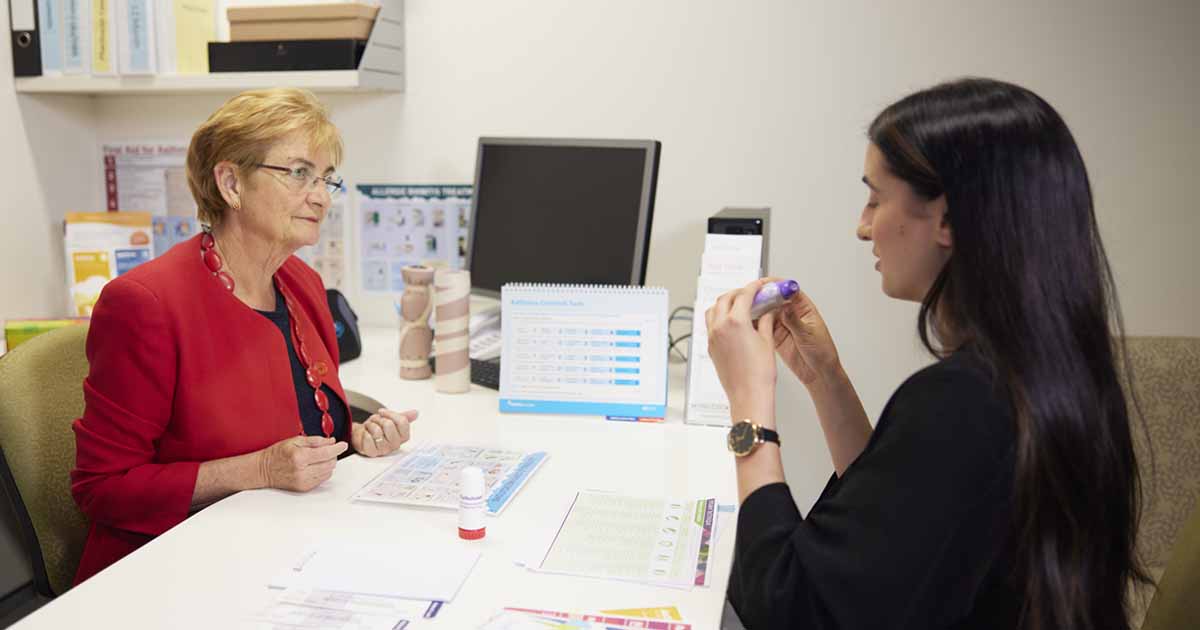The Woolcock Institute of Medical Research

Local pharmacists effective in improving asthma control
Woolcock researchers trialling a new community pharmacy asthma management service have uncovered some surprising results.
"It was really exciting to discover that even the everyday support a pharmacist offers people with asthma is highly effective," says researcher Sarah Serhal.
"We found that the act of identifying a patient with poorly-controlled asthma triggered positive action in terms of GP referral and pharmacist care."
"Our results demonstrate that there is a real opportunity for pharmacists to add value to the care of asthma patients offered by GPs."
Ms Serhal, a pharmacist and Woolcock doctoral student, was investigating the use of a technology-based pharmacy asthma management program to improve symptoms and quality of life in Australians with uncontrolled asthma.
The research team, which included Woolcock Executive Director Professor Carol Armour, trained up to 100 pharmacists from 51 pharmacies across NSW, WA and Tasmania to trial the service for one year. Adults with uncontrolled asthma attending these pharmacies took part in the asthma management program, which focused on medication use, inhaler technique, and hay fever management over four consultations.
A further 44 pharmacies formed the control arm, where patients with poorly controlled asthma received ‘treatment as usual’ and a referral of eligible patients to their GP.
"We were encouraged that the standard of care offered by pharmacists in both arms was able to improve asthma control for patients," Ms Serhal says.
She says the findings should encourage Australians living with asthma to take advantage of the knowledge and expertise offered by their local pharmacist.
"Research shows the average Australian visits a pharmacy 18 times a year, so there’s an opportunity there to add value to the care patients get from their doctor," she says.
The project was designed and implemented by a consortium led by the Woolcock Institute of Medical Research. The consortium was made up of Australian universities, research institutions and key asthma and pharmacy bodies, including the University of Sydney, Curtin University, University of Tasmania, the Pharmacy Guild of Australia, Pharmaceutical Society of Australia, the National Asthma Council Australia and the George Institute. The project was supported by the Commonwealth of Australia as represented by the Department of Health via the Sixth Community Pharmacy Agreement (6CPA).










